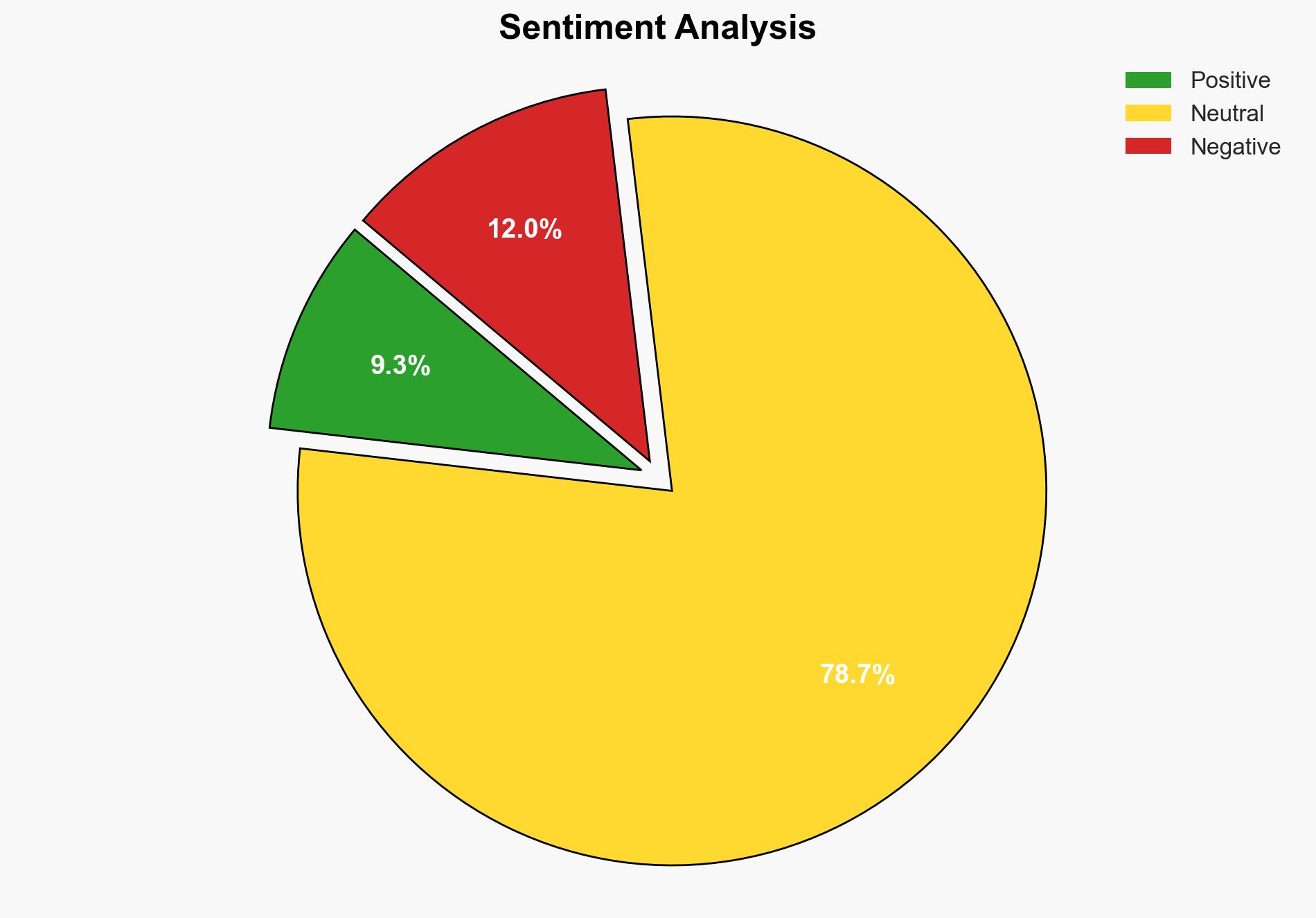Head of Islamic State in Iraq and Syria has been killed Iraqi prime minister says – Japan Today
Published on: 2025-03-14
Intelligence Report: Head of Islamic State in Iraq and Syria has been killed Iraqi prime minister says – Japan Today
1. BLUF (Bottom Line Up Front)
The head of the Islamic State in Iraq and Syria, Abdallah Maki Mosleh Al Rifai, also known as Abu Khadija, has been killed in an operation led by the Iraqi National Intelligence Service with coalition support. This event marks a significant victory in the ongoing fight against terrorism in the region. The operation, conducted via an airstrike in Anbar province, underscores the continued efforts of Iraqi forces to dismantle terrorist networks. The announcement coincides with diplomatic engagements aimed at strengthening regional cooperation against terrorism.
2. Detailed Analysis
The following structured analytic techniques have been applied for this analysis:
General Analysis
The elimination of Abdallah Maki Mosleh Al Rifai is a critical blow to the leadership structure of the Islamic State, potentially disrupting their operational capabilities. The operation highlights the effectiveness of intelligence-sharing and collaboration between Iraqi forces and international partners. The timing of the announcement, following diplomatic discussions between Iraq and Syria, suggests a coordinated effort to address cross-border terrorism threats. The presence of Fouad Hussein and other officials in these discussions indicates a strategic focus on regional stability and counterterrorism.
3. Implications and Strategic Risks
The death of a key Islamic State leader may lead to a temporary destabilization within the group, creating opportunities for further counterterrorism operations. However, it also poses risks of retaliatory attacks and the potential for power struggles within the organization. The ongoing instability in Syria, particularly with the fall of Bashar Assad and the rise of groups like Hayat Tahrir al-Sham, could exacerbate security challenges in Iraq. The withdrawal of coalition forces from Iraq may impact the country’s ability to maintain pressure on remaining terrorist cells.
4. Recommendations and Outlook
Recommendations:
- Enhance intelligence-sharing mechanisms between regional partners to preemptively address emerging threats.
- Strengthen border security to prevent the movement of militants across the Iraq-Syria border.
- Invest in counter-radicalization programs to reduce the recruitment pool for terrorist organizations.
Outlook:
In the best-case scenario, the disruption of Islamic State leadership leads to a significant reduction in their operational capabilities, allowing for increased regional stability. In the worst-case scenario, leadership vacuums result in increased violence and fragmentation of terrorist groups, complicating counterterrorism efforts. The most likely outcome involves a continued, albeit reduced, threat from remaining cells, necessitating sustained counterterrorism operations and regional cooperation.
5. Key Individuals and Entities
The report mentions significant individuals and organizations:
- Abdallah Maki Mosleh Al Rifai (Abu Khadija)
- Mohammed Shia Al Sudani
- Fouad Hussein
- Bashar Assad
- Ahmad Al Sharaa
- Asaad Hassan Al Shibani





